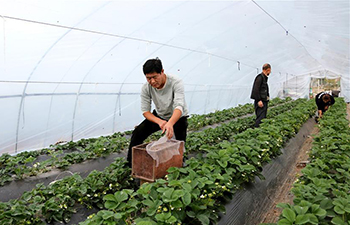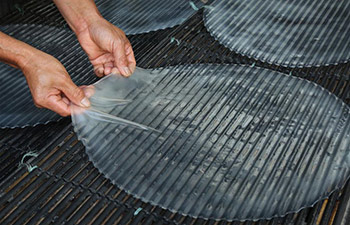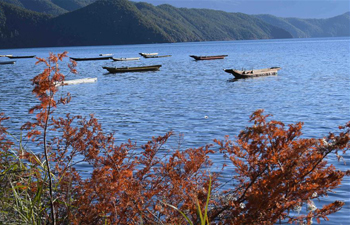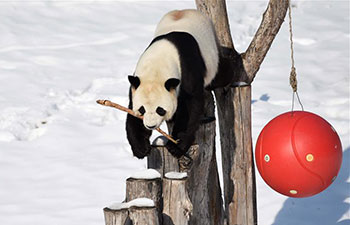GENEVA, Nov. 14 (Xinhua) -- Switzerland is becoming drier, hotter and less snowy, and will struggle with heavier rainfall in the future as a result of global warming, which requires an efficient adaptation policy, according to a latest study by Swiss Federal Institute of Technology in Zurich (ETH Zurich) on Wednesday.
The study, entitled the Climate Scenarios CH2018, was jointly conducted by researchers from ETH Zurich and MeteoSwiss on behalf of the Swiss Federal Council, which depicts the picture of climate change understood thus far.
It shows four main changes that will shape the climate in Switzerland in the mid-century without increased global climate mitigation. First the summers will become ever drier, featured by decreasing average rainfall and increasing evaporation with rising temperatures, which results in drier soil.
The average near-surface air temperature will rise in the summer months of June to August by 2.5 degrees to 4.5 degrees Celsius in comparison to today, while the longest dry period without precipitation in summer, due to up to a quarter less rainfall, could last nearly three weeks, the study predicts.
Then the hot summer days will become even hotter, with the highest temperatures reaching two to 5.5 degrees Celsius higher than now. Hot summers such as those of the record years 2003 and 2018 could thus become the norm, and heatwaves will become more frequent and more extreme. Metropolitan areas will be especially affected by heat stress, it says.
The third change would be heavy precipitation, with individual heavy precipitation events becoming more frequent and more intense in the future than today. The heaviest precipitation falling on a single day will increase by about 10 percent on average.
Last, winters will be significantly warmer than current ones, with a possible temperature rise of two to 3.5 degrees Celsius. More precipitation will fall more frequently in the form of rain because of the higher temperatures, and snow will become less frequent and intense. The expected snow cover in low elevations will be halved compared to today.
Based on the latest climate models, the study is considered to present the most accurate glimpse into Switzerland's future climate for the next 100 years.
Fortunately, with consistent climate mitigation, about half of the potential changes in Switzerland's climate could be avoided by the middle of the 21st century, and about two thirds could be avoided by the end of the century, the researchers concluded, calling on the authority and the public alike to actively pursue an efficient adaptation.













